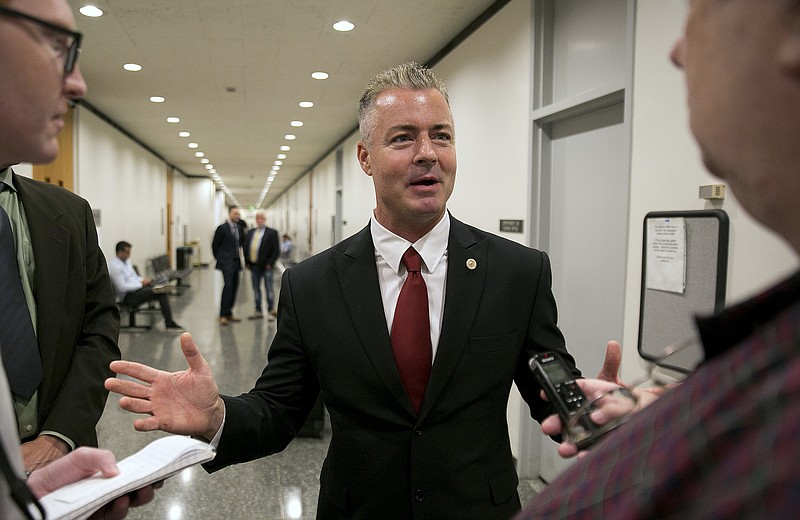An Arizona lawmaker who repeatedly harassed women has become the first since the swell of the #MeToo movement to get kicked out of office by colleagues but likely will not be the last to face repercussions amid intensifying scrutiny of sexual misconduct in state legislatures.
The heightened focus on harassment and misconduct has led to growing calls for change in a year that already has seen an unusually large number of women expressing interest in running for office.
“This conduct perpetuates the good-old-boys culture all too familiar to women in workplaces across the nation,” said Ohio state Rep. Teresa Fedor, one of several female Democratic lawmakers who called this week for the resignation of Republican Rep. Bill Seitz because of offense remarks. “Women and men deserve better, not more of the same tired excuses. It’s time for a change.”
With his expulsion Thursday, Arizona Rep. Don Shooter became the 15th state lawmaker to leave office since the start of 2017 (the others resigned) after being accused of sexual misconduct. About 20 others have faced lesser consequences, ranging from forced apologies to suspensions to the loss of powerful leadership posts, according to a state-by-state review by the Associated Press.
Sexual harassment investigations are ongoing against other state lawmakers, including in California, Hawaii, Kentucky and Oregon. On Friday, the Democratic leaders of the California Assembly and Senate released records that show four current lawmakers have faced such complaints since 2006, although none was formally disciplined. They include a 2017 allegation against a female lawmaker, Democratic Assemblywoman Autumn Burke, who later took responsibility for engaging in sexually charged banter.
The issue is already beginning to resonate in election campaigns. Women have stepped forward as candidates in five of the eight upcoming elections across the nation to replace lawmakers who resigned amid sexual misconduct allegations.
In what could be a historic election, many women have said they plan to run for office this year for the first time at all levels of government, from statehouses to Congress. That is driven largely by Democratic frustration over the election of President Donald Trump, but the #MeToo movement also is playing a role.
Experts say lawmaker resignations and retirements can provide an opportunity for women, because it’s easier for a political newcomer to be competitive in an open seat rather than challenging an incumbent with name recognition and a stockpile of campaign cash.
“When the issue is sexual harassment and men behaving very badly, it also opens up a window for a woman candidate,” said Debbie Walsh, who leads the Center for American Women and Politics at Rutgers University. “Whether it’s true or not, women are perceived to be more ethical and honest and far less likely to behave in the manner that these lawmakers did.”

